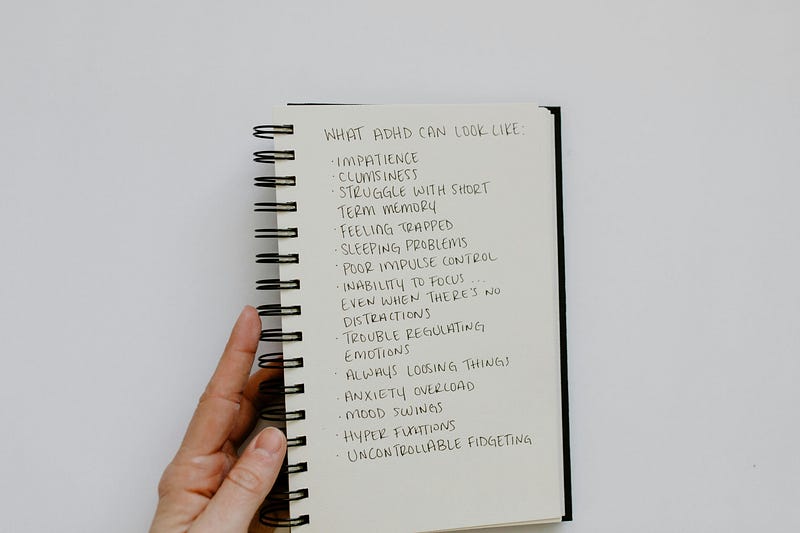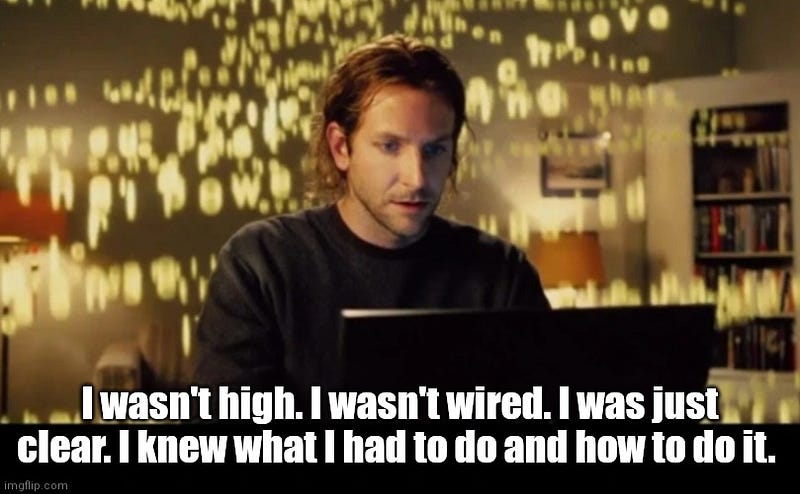Navigating ADHD: Lessons Learned Beyond Medication
Written on
Chapter 1: The Reality of ADHD
ADHD faces a significant challenge in how it is perceived in society. Many believe that simply taking medication, such as Adderall or Vyvanse, will lead to a fulfilling life. The common narrative suggests that medication solves all problems, allowing individuals to focus effortlessly and navigate daily life with ease.
As Jessica McCabe states, "We are acceptable humans as is, not once we stop having ADHD. You do not need to be fixed because you are not a broken version of normal." For me, the journey began long before I was aware of my ADHD diagnosis, which I only confirmed during my freshman year of college. Initially, I was hesitant to rely on medication, fearing addiction and dependency, leading me to sometimes forgo it altogether.
Yet, I believe there is insufficient conversation in both the ADHD community and the broader mental health field about the additional work required alongside medication. It’s crucial to explore the mindset shifts and lessons necessary to maximize the benefits of any treatment.

Chapter 2: Lessons Learned on My Journey
At the end of the day, my Vyvanse isn’t a magical solution. I can't miraculously solve the world's problems or complete my to-do list just because my brain chemistry is somewhat balanced. Through my experiences and the stories of others, I've identified essential lessons and mindset adjustments that help me manage my ADHD more effectively.
Video: 26 years of ADHD: Here's what I learned - YouTube
In this video, personal experiences with ADHD are shared, emphasizing the lessons learned over decades.
Lesson 1: Embracing Unwanted Tasks
One deeply ingrained belief from my upbringing was the idea that if I didn't want to do something, it was pointless to try. This mindset often frustrated my mother. I frequently found myself struggling to complete tasks that didn’t capture my interest, while other activities, like debate or hobbies, came easily due to my ability to hyper-focus.
When I began medication and later switched to a more effective one, I mistakenly thought that all tasks would become enjoyable. However, I quickly realized that some chores would still be tedious. The difference was that with medication, I could endure them better, and they became manageable with practice.
Lesson 2: Recognizing Impermanence
A mantra that has helped me through tough times is "This too shall pass." My mother gifted me a ring with this saying, and it serves as a constant reminder that difficult feelings are not permanent.
Despite having medication to help manage my emotions, I still experience anxiety and sadness. However, understanding that these feelings are temporary allows me to better utilize my medication to regulate my emotions without becoming overwhelmed.

Lesson 3: The Importance of Self-Compassion
One of the hardest realizations when starting ADHD medication is the lingering feeling of inadequacy. Recently, I took a college-level math test while on medication and scored a 97. Despite this success, I was frustrated about missing one question and overwhelmed by my remaining tasks.
I am learning that self-criticism isn’t productive. Grace is essential, even for those of us with ADHD. My medication is not intended to make me superior; it simply helps me to function as a human being. Each accomplishment is a bonus, and I should focus on self-care rather than external validation.
Video: ADHD Aha | Why “just try harder” is a myth (David's story) - YouTube
This video discusses common misconceptions about ADHD, emphasizing the importance of understanding the condition beyond simple advice.
In conclusion, I hope sharing my experiences has resonated with you, regardless of your current challenges. ADHD can be difficult to navigate, but it has imparted valuable lessons, for which I am ultimately grateful. Remember, you are human, not a perfect entity, and the struggles you face will eventually pass.
Kindly, Katie